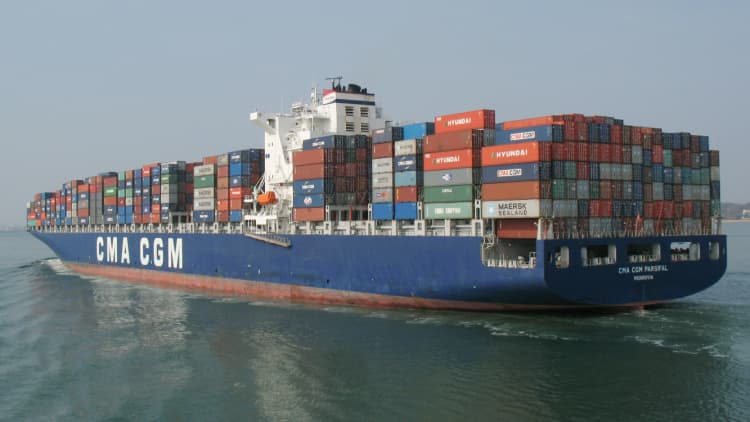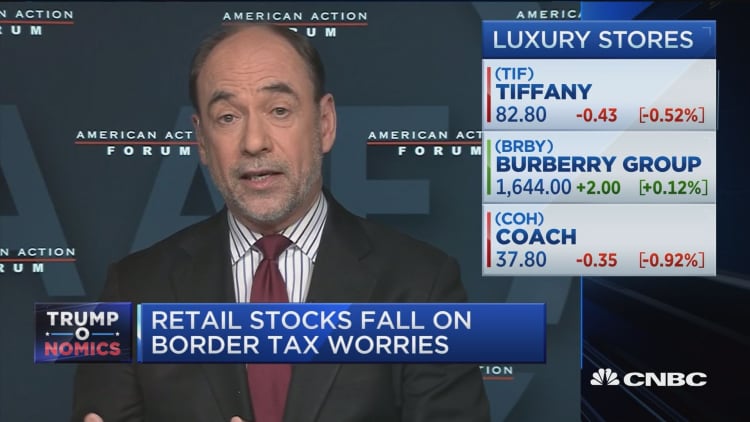
The border-adjustment tax will take money out of the pockets of middle-class Americans to pay for tax cuts for corporations and wealthy individuals, Rep. Ro Khanna, D-California, told CNBC on Friday.
The measure is part of the Republicans' broader corporate tax reform package and would tax imports coming into the U.S. and exempt exports.
"The plan would basically be a tax on middle-class Americans and working families. They would be paying more for gas, more for food, more for their cellphones, more for clothing and it's basically reverse redistribution," he said in an interview with "Power Lunch."
The border-adjustment tax has not only faced resistance from Democrats but from U.S. corporations that import goods, like retailers. On Wednesday, a number of retail executives met with President Donald Trump and lawmakers to voice opposition to the plan.
Some Republicans are also questioning the viability of the tax. Earlier this week, Sen. Tom Cotton, R-Arkansas, has said he has "serious concerns" about it.
It also appears it is unlikely to become law. Senate Majority Whip John Cornyn, R-Texas, told Bloomberg he didn't see the votes lining up, saying "the hard reality is the border tax is on life support."
Plus, President Trump has yet to publicly back the measure. His own tax plan is expected to be released in the next few weeks.
Alan Auerbach, a professor at University of California, Berkeley, has been talking about this issue for a decade and his research is the basis for the GOP plan. He argues the tax will not increase the cost of consumer goods.
That's because markets and currencies react to these types of provisions, he told "Power Lunch."
Instead of boosting the price of imports, the tax would change the incentives of companies, Auerbach argued.
"This is a plan that would encourage companies ... to locate production facilities in United States and it would be quite progressive because it would help the wages of American workers," he said.
However, Khanna said Japan tried this type of tax and its currency didn't appreciate.
"To have some theory that five years later it's going to appreciate and in the meantime working families get hurt to pay for tax cuts for the wealthiest individuals is just wrong," he argued.
— CNBC's Kerima Greene and Patti Domm contributed to this report.



